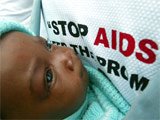France adds a Tax
Reading the
International Herald Tribune this morning, avoiding Christmas shopping as much as possible, I was encouraged to read that France intends to make its travelers pay more for flying.
Parliament approved the increased tax measures on Thursday which may be applied from July. The Tax will increase airfares by anywhere between €1 and €40 for any seat that departs from a French airport. (The price depends on the class and distance flown.)
So why does a tax hike in France come to the attention of a Misguided One?
President Chirac has pushed for the tax, which is expected to raise €200 million a year to fight AIDS and in support of other aid programs, largely in African countries.
Algeria, Brazil, Britain, Chile and Norway have all publicly backed the idea and have indicated they might follow suit.Not surprisingly airline industry groups are opposed to the measures...
Law Lords tell it as it is...
Seven Law Lords have declared that...
'Secret evidence obtained by torture cannot be used against terror suspects in UK courts' (BBC)
In handing down the ruling Lord Bingham, the former Lord Chief Justice, and head of the seven member panel announced...
"The issue is one of constitutional principle, whether evidence obtained by torturing another human being may lawfully be admitted against a party to proceedings in a British court, irrespective of where, or by whom, or on whose
authority the torture was inflected," said Lord Bingham, writing the lead opinion for the Law Lords, roughly equivalent to the United States Supreme Court. "To that question I would give a very clear negative answer." (NY TIMES)
Amnesty International proclaimed the ruling to be momentous saying that the ruling 'overturned the tacit belief that torture can be condoned under certain circumstances.'
Speaking of English national pride in its common-law rejection centuries ago of torture as a means to an end, Lord Hoffman brought his argument forward to the current era.
"In our own century," he wrote, "many people in the United States, heirs to that common-law tradition, have felt their country dishonored by its use of torture outside the jurisdiction and its practice of extra-legal 'rendition' of suspects to countries where they would be tortured."
One can only hope that this British ruling encourages the rest of the world to take a stand I'll leave the conclusion to Lord Bingham...
"The principles of the common law, standing alone, in my opinion compel the exclusion of third party torture evidence as unreliable, unfair, offensive to ordinary standards of humanity and decency and incompatible with the principles which should animate a tribunal seeking to administer justice."
Time flies...
Late Monday afternoon the Australian Federal government took the action of guillotining debate within the Senate to force a vote on the
Anti-Terrorism Bill 2005.
Late Tuesday afternoon the Australian Federal Government took the action of guillotining debate within the Senate to force a vote on the
Workchoices Bill 2005 and the
Welfare to Work and Other Measures Bill 2005.The Howard Regime intends to pass another 14 pieces of legislation this week, a number of which are considered controversial. So it looks like the
elected ones have a few long nights ahead of them, it also highlights the advantage in having a two house majority.
In the first
post authored by the trio we vowed to confront, amongst other things, human rights, so it is only fair that I touch on the
Workchoices Bill, a Bill that I believe constitutes a violation of Articles 23 and 24 of the Universal Declaration of Human Rights.
Article 23- Everyone has the right to work, to free choice of employment, to just and favourable conditions of work and to protection against unemployment.
- Everyone, without any discrimination, has the right to equal pay for equal work.
- Everyone who works has the right to just and favourable remuneration ensuring for himself and his family and existence worthy of human dignity, and supplemented, if necessary, by other means of social protection.
- Everyone has the right to form and to join trade unions for the protections of his interests.
So what makes me think that the Howard Regime is violating the rights of Australians?
The reforms, according to the Government, remove the unions' stranglehold on conditions and pay rates in favour of making the worker negotiate their conditions.
The outcome of such action can perhaps be best illustrated by Channel 9's Sunday Program which told us the tale of sewage treatment worker Steve Archer. (For the full transcript go here.)
Steve Archer: Well, we're on about $16.50 an hour on this job. There's no conditions. We work for a private contractor and he virtually dictates to us, whatever, you know.
Reporter (Sarah Ferguson): 'Whatever' means no overtime, no annual leave loading, no paid lunch break, and none of the other benefits, like the daily hygiene allowance, that the unionised workers get.
Archers wages and conditions were set not by the union but by a private contractor supplying workers to Sydney Water, those on the union award get better conditions and better pay.
Steve Archer: I've spoken with Sydney Water people that do this job and there's something in the order of around about $170 a week difference, for the same job.
So we have a violation of Section 2 Article 24 for of the Declaration... Equal Pay for equal work...
Article 24
Everyone has the right to rest and leisure, including reasonable limitation
of working hours and periodic holidays with pay.
The legislation that has been passed by the Senate protects an employee's unwillingness to work on Christmas day. As for reasonable limitations of working hours and periodic holidays with pay, well that is completely reliant upon the employees negotiating abilities.
Other countries that have enacted similar laws include New Zealand and Britain, you only need to speak to a Kiwi or a Brit at your local pub to find out how well they worked out for them...
10 December: Human Rights Day 2005
Nearly 60 years after the General Assembly of the United Nations adopted the Universal Declaration of Human Rights, the world continues to be confronted with severe abuses of human rights. Nearly as bad, the world is also confronted by a most disturbing complacency of these abuses. Let's stop this.
"Human rights education is much more than a lesson in schools or a theme for a day; it is a process to equip people with the tools they need to live lives of security and dignity. On this International Human Rights Day let us continue to work together to develop and nurture in future generations a culture of human rights, to promote freedom, security and peace in all nations." Kofi Annan, Secretary-General (2004) In Larger FreedomReport of the Secretary General of the United Nations
Ceremonies to Commemorate Montreal Massacre
"On December 6th, 1989, 14 young women at École polytechnique de Montréal were murdered for a single reason - because they were women."
Stop violence.Stop violence against women. The Montreal MassacreCeremonies commemorate Dec. 6 attack on women Statement by the Prime Minister- Geneviève Bergeron, 21, was a 2nd year scholarship student in civil engineering.
- Hélène Colgan, 23, was in her final year of mechanical engineering and planned to take her master's degree.
- Nathalie Croteau, 23, was in her final year of mechanical engineering.
- Barbara Daigneault, 22, was in her final year of mechanical engineering and held a teaching assistantship.
- Anne-Marie Edward, 21, was a first year student in chemical engineering.
- Maud Haviernick, 29, was a 2nd year student in engineering materials, a branch of metallurgy, and a graduate in environmental design.
- Barbara Maria Klucznik, 31, was a 2nd year engineering student specializing in engineering materials.
- Maryse Laganière, 25, worked in the budget department of the Polytechnique.
- Maryse Leclair, 23, was a 4th year student in engineering materials.
- Anne-Marie Lemay, 27, was a 4th year student in mechanical engineering.
- Sonia Pelletier, 28, was to graduate the next day in mechanical engineering. She was awarded a degree posthumously.
- Michèle Richard, 21, was a 2nd year student in engineering materials.
- Annie St-Arneault, 23, was a mechanical engineering student.
- Annie Turcotte, 21, was a first year student in engineering materials.
Do Yourself a Favour
WHAT: World AIDS Day ONE Campaign podcast
WHO: Former President of South Africa Nelson Mandela
Bono, U2 lead singer and co-founder of DATA (Debt, AIDS, Trade for Africa)
Chris Martin, lead singer of Coldplay
Faith leaders, artists and other ONE supporters
WHEN: 12:01a.m., World AIDS Day, December 1, 2005
WHERE:
www.ONE.org www.Gcast.comPodcast directories like iTunes & Yahoo
World AIDS Day: Let's talk about it
Aids poses 'exceptional threat'
"An estimated 40 million people are currently infected with HIV - the virus that can lead to Aids. More than 20 million have died since the condition was first recognised." [a conservative estimate]
Annan: 'We must do far, far more' against AIDS  The Obelisk of Buenos Aires is covered with a giant condom to commemorate World AIDS Day December 1, 2005. According to a report issued by ONUSIDA (UN AIDS), the number of people infected with the HIV virus in Latin America had risen over the last year from 1.6 to 1.8 million. REUTERS
The Obelisk of Buenos Aires is covered with a giant condom to commemorate World AIDS Day December 1, 2005. According to a report issued by ONUSIDA (UN AIDS), the number of people infected with the HIV virus in Latin America had risen over the last year from 1.6 to 1.8 million. REUTERS




